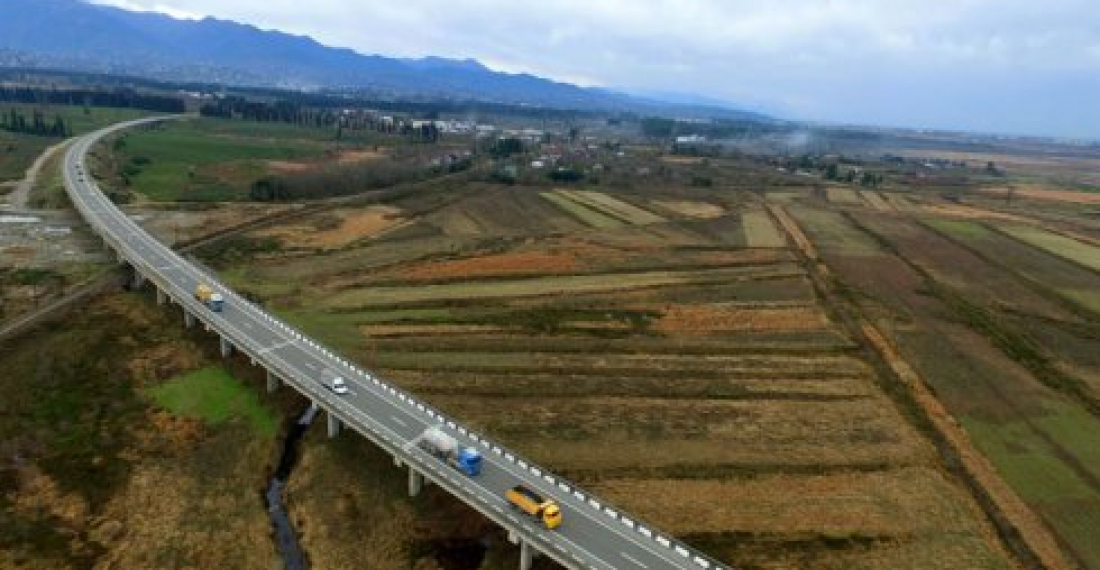The Asian Development Bank (ADB) has approved a USD415 million loan to Georgia to build a new highway as part of a wider government program to improve the country's transport network and enhance Georgia as a regional trade and tourism hub. This was announced in a statement posted on the Bank's website
The Kvesheti-Kobi Road Project is the first in a series of upgrades planned for the North-South Corridor, which is a vital transit route for Georgia, Armenia, and regional trading partners. The corridor also intersects with the East-West Highway to the north of Tbilisi, the capital, providing access to the shortest link connecting Central Asia with Europe and East Asia.
Apart from the many benefits it will bring to Georgia, the new road will also greatly benefit Armenia which currently relies on transit through Georgia for its trade with Russia, one of its most important trading partners.
The 23-kilometer (km) bypass will be built between the towns of Kvesheti and Kobi and pass through the spectacular Caucasus Mountains in the country's northeast. It will provide a safer and faster travel alternative for residents, tourists, and freights trucks who face worsening delays on the current road, especially on the Jvari Pass section, which is highly exposed to avalanches in winter.
The bypass will follow a new alignment through the Khada Valley and include engineering features such as Georgia's longest tunnel (9 km) and its most advanced arch bridge spanning the Khadistskali River. The road will also provide a much-needed link to services and job opportunities for the valley's remote communities.
Currently, the 3,500 vehicles that use the existing 35-km road each day face high accident risks as well as road closures of more than 40 days a year, mostly in winter. With traffic numbers expected to double over the next 10 years, building a shorter, safer, and faster road that is operational all year is a national priority.
Total transit trade along the North-South Corridor in 2015 amounted to 1.3 million tons of freight, or 12% of Georgia's total transit trade. Meanwhile, tourism accounts for around 7% of Georgia's gross domestic product, with the North-South Corridor towns of Gudauri and Stepantsminda among the country's prime destinations. By diverting freight trucks away from Gudauri via the bypass, the Kvesheti-Kobi Road Project will contribute vital infrastructure for Gudauri to become an internationally-recognized winter resort.
The project is estimated to cost $558.6 million, with cofinancing of $60 million anticipated from the European Bank for Reconstruction and Development (EBRD) and $83.6 million from the Government of Georgia. The road has been designed to European standards and will be single lane each way plus an additional climbing lane uphill for heavy vehicles. To overcome difficult terrain challenges in the Caucasus Mountains, it will require 5 tunnels at a total length of 11 km and 6 bridges at a total length of 1.6 km.
During project preparation, the Roads Department of Georgia, ADB, and EBRD conducted extensive assessments and consultations with local communities, civil society organizations, and other project stakeholders. Every care has been taken to ensure the environmental and social impacts of the project are minimized and mitigated, including measures to protect the Khada Valley's biodiversity and cultural heritage sites.
Work on the construction of the new road will start in 2020.
source: commonspace.eu with ADB.org






